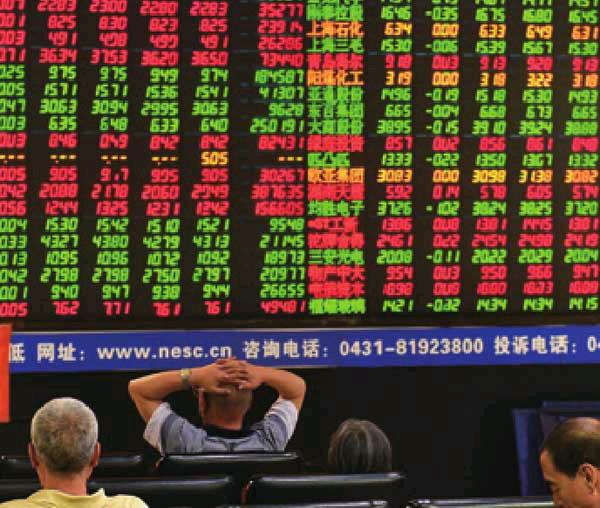A Vital Step Toward a Sound Stock Market
2016-08-17

The China Securities Regulatory Commission (CSRC) announced on July 8 a decision to delist electrical equipment manufacturer Dandong Xintai Electric Co. Ltd.(Xintai Electric) in a move that demonstrates to companies, both listed ones and those aspiring to become so, that the stock regulator is getting serious about tightening delisting procedures to protect investors. By delisting Xintai Electric, the CSRC shows determination to make Chinas A-share market a more open, fair, just and transparent trading environment.
The harsh punishment, though unexpected, is understandable. Whats also unexpected is the CSRCs ability to detect problems that occurred two years ago and, during ensuing investigations, find the company guilty on several counts of misconduct—faking financial data in its application for an initial public offering (IPO), embezzlement by major shareholders, releasing false information in regular reports, and violations of information disclosure rules. Its understandable, then, that the stock regulator has kicked the company out of the market.
According to some analysts, the move is an attempt by the CSRC to boost investors confidence, which is currently lacking in Chinas capital markets. In the absence of such action, the markets have no credibility for ordinary investors as illegal activities such as insider trading undermine their interests.
I strongly agree with the punishment the stock regulator imposed on Xintai Electric, which, from my perspective, is a vital step for creating sound capital markets in China.
A healthy market means not necessarily a bullish one, but rather, one without illegal activities that harm the interests of companies and small investors. Cleansing the market will not necessarily help lift market sentiment at first and will probably trigger chain reactions, as some institutions start to question whether the companies in which they have invested have similar problems and worry that they will also be penalized.
Xintai Electric is the first company to be delisted from Chinas A-share market for IPO fraud, and similar investigations and penalties are bound to follow. Investors dont really know whether companies in which they invest are withholding information, so even if a company looks glamorous from the outside, they could face unexpected risks at any time.
Overall, minority shareholders are the largest losers in Xintai Electrics delisting. Delisting means the company has no chance of re-entering the A-share market. So, if investors cannot sell their stock now, their money will go down the drain.
Parties involved in the Xintai Electric scandal include senior executives, the board of directors, the IPO underwriter, the IPO sponsor and the accounting firm that handled the IPO. If any of them had voiced strong opposition before the IPO, the company would not have got listed, and tens of thousands of small investors would have been saved.
The Xintai Electric incident also has implications for Chinas ongoing stock market reform, which aims to replace the current approval-based IPO mechanism with one based on registration. Theoretically, the registration-based system will make it easier for companies to list on the markets, but subsequent supervision will become stricter. If some companies still fake their financial data in order to get listed, they will harm millions of investors, making the market lose all its credibility.
The penalty for Xintai Electric, therefore, serves as a warning to other companies. Only by the CSRC adopting tougher measures and harshly punishing those who violate the rules can the market be cleansed.
In addition to imposing stringent requirements on companies applying for IPOs, the CSRC should also strengthen the regulations for accounting firms, underwriters and sponsors. Financial fraud can be contained only if every link of the listing process is strictly controlled. To create sufficient deterrents, serious violations should be made subject to criminal punishment.
